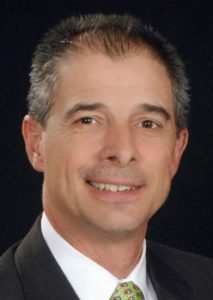From the beginning, I’ve stood with the kneelers. It’s time for you to join me.
The unnecessary furor began in August 2016 when the quarterback for the NFL’s San Francisco 49ers was joined by one teammate to take a knee during the playing of the National Anthem before a game. Colin Kaepernick, whose name is now synonymous with either courage or treason, depending on your view of the divisive issue, has stated his aims clearly: “I am not protesting the anthem or the nation. I’m protesting organized brutality. To me, this is much bigger than football, and it would be selfish to look the other way. There are bodies in the street and people getting paid leave and getting away with murder.”

Russ Dean
One may disagree with Kaepernick’s position, arguing, against all evidence, that he is wrong about the brutality endured by many African Americans at the hands of uniformed police officers. One may not, with integrity, insist that his protest is unpatriotic anti-Americanism. He has stated, unequivocally, that his protest is not against the flag. The many players who have joined his cause have insisted likewise. There is no reason to distrust their word. The inequality and violence their kneeling speaks against continues unabated.
As Kaepernick and a retired Green Beret and former NFL player named Nate Boyer tell the story, those two friends talked and agreed with the veteran’s suggestion: kneeling is a posture of respect, and kneeling during the anthem would offer a powerful visual, simultaneously paying respect and offering protest. A powerful visual?
That might be the understatement of the decade.
Kaepernick, like many patriotic protestors, has paid the price for his conviction. At the end of that season, the standout QB was blacklisted from the game, his protest having been twisted into a proverbial “political football,” bound in racial animus and nationalism (parading as patriotism). No one knows for sure if his banishment was by official dictum from league officials or just by peer pressure from a majority of NFL owners and coaches. It matters not. Kaepernick hasn’t taken a snap in four years.
The White House long ago started crooning victory: One haughty “son of a b—-” down (Trump’s words, not mine), many more to go. But if you don’t know the definition of a Pyrrhic victory, now might be a good time to ask Google.
I’m sure it did not pass 1600 Pennsylvania Avenue recently without notice that as the National Basketball Association opened its COVID-shortened season, two teams, along with every coach and official, took a knee on the sideline as the anthem played. The players all wore Black Lives Matter T-shirts. There was not a single “I Hate the USA” screen-print in the whole lineup. Many Major League Baseball players already had struck the pose. The NFL is positioned to do the same, having announced that Lift Every Voice and Sing (the “Black National Anthem”) will be played alongside The Star-Spangled Banner before every game during the first week of the upcoming season.
From the beginning, I’ve stood with the kneelers. It’s time for you to join me.
“It is possible that protest is one’s patriotic duty.”
You see, it is possible that a stated protest over racial inequality and police brutality actually is about racial inequality and police brutality. It is possible that protest is one’s patriotic duty. (Think the Boston Tea Party, the March on Washington, Vietnam War protests, picket lines.) It is possible to be grateful, humbled (knee deep) by the courage and commitment of dedicated police officers while being honest about systemic bias in the system.
And it is more than possible that Kaepernick’s powerful protest, a call for justice that has echoed through the pain of Ferguson and Baltimore and Charlotte and now Minneapolis and Portland, is one that will not be silenced until the entire nation is brought to its knees, until we finally recognize our sinful ways, until we finally live up to our bold and daring vision: “unalienable rights,” “liberty and justice for all.”
A moment of national reckoning that began with a humble knee to the ground has risen on the voices of millions as a movement that will not be silenced. There is no turning back. And you know what they say: “If you can’t beat ’em. Join ’em.”
From the beginning, I’ve stood with the kneelers. I hope you will join me.
Russ Dean is co-pastor of Park Road Baptist Church in Charlotte, N.C. He holds degrees from Furman University, Southern Baptist Theological Seminary and Beeson Divinity School. He and his wife, Amy, have been co-pastors of Park Road since 2000. They are parents of two sons. Russ is active in social justice ministries and interfaith dialogue.
